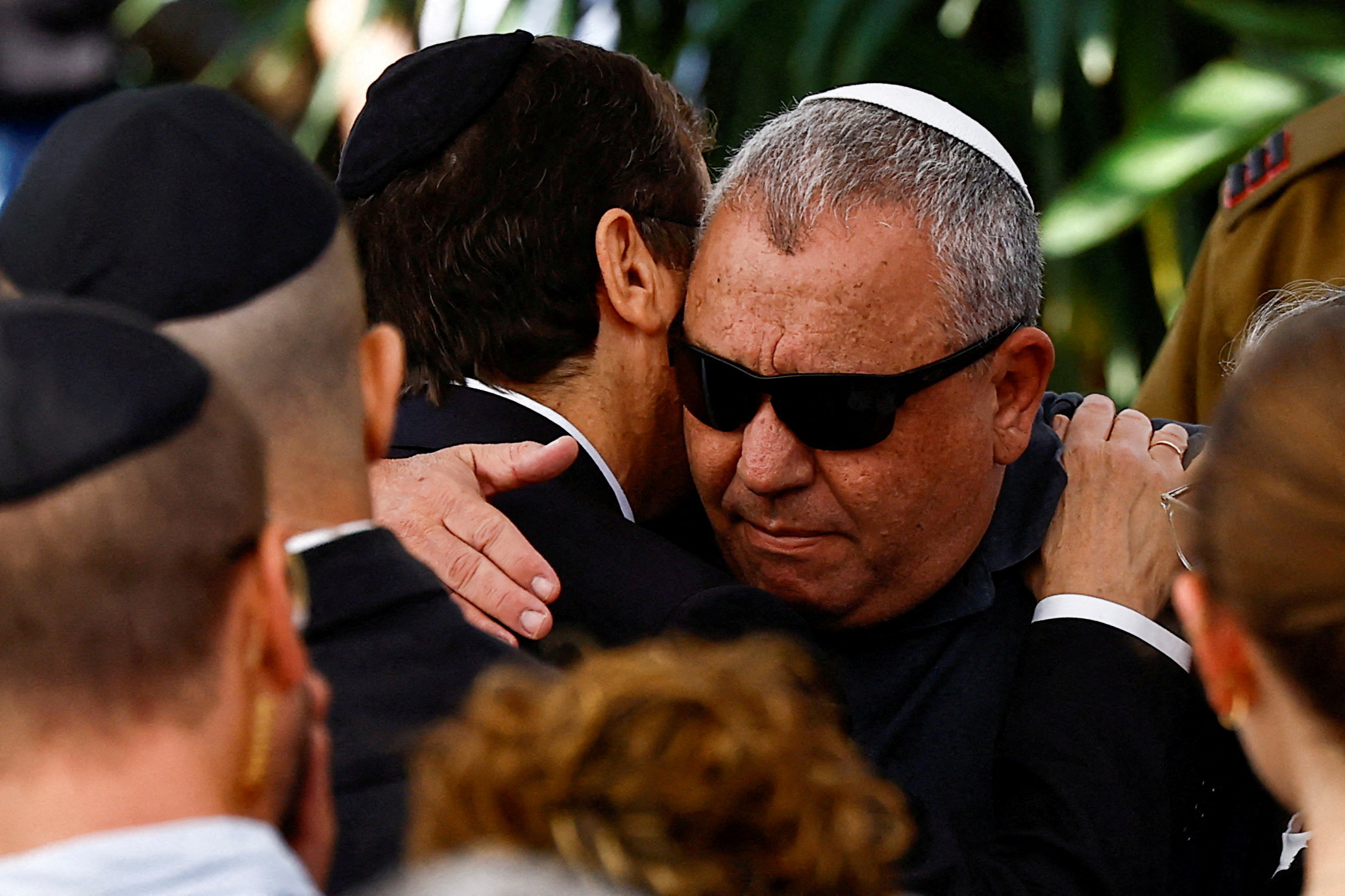
views
War cabinet minister Gadi Eisenkot appeared to criticise Prime Minister Benjamin Netanyahu’s handling of the ongoing conflict with Hamas in Gaza, raising concerns about the strategy for releasing hostages held in the region.
If reports are to be believed, rifts are emerging among top Israeli officials over the war against Hamas, now in its fourth month. Only a cease-fire deal can win the release of dozens of hostages and claims they could be freed by other means was spreading “illusions,” said former army chief Eisenkot, one of four members of the War Cabinet.
Eisenkot’s comments late Thursday were the latest sign of disagreement among political and military leaders over the direction of Israel’s military campaign. Triggered by the deadly Oct. 7 Hamas attack that killed about 1,200 people and saw about 250 others taken hostage, the Israeli assault has pulverised much of the Gaza Strip. Israel has said more than 130 hostages remain in Gaza, but not all of them are believed to be alive.
Israel’s offensive, one of the deadliest and most destructive military campaigns in recent history, has killed nearly 25,000 Palestinians, according to Gaza health authorities. Israel has also cut off all but a trickle of supplies into the besieged Gaza Strip, including food, water and fuel. Both the US and the UN have said more aid needs to be delivered.

The interview with Eisenkot aired hours after Netanyahu rejected the idea of holding elections in the middle of a war and promised to “bring complete victory” over Hamas. “Whoever speaks of absolute defeat is not speaking the truth,” Eisenkot said in the interview, according to The Times of Israel. “That is why we should not tell stories… Today, the situation already in the Gaza Strip is such that the goals of the war have not yet been achieved.”
Eisenkot, whose son was killed in December in Gaza, told Israel’s Channel 12 television station that “the hostages will only return alive if there is a deal, linked to a significant pause in fighting.” The former army chief said dramatic rescue operations are unlikely because the hostages are apparently spread out, many of them in underground tunnels. Claiming hostages can be freed by means other than a deal “is to spread illusions,” he said.
In a veiled criticism of Netanyahu, Eisenkot also said strategic decisions about the war’s direction must be made urgently, and that a discussion about an endgame should have begun immediately after the war began. “We haven’t yet reached a strategic achievement, or rather only partially,” Eisenkot said. “We did not bring down Hamas.”
The former army chief said he is examining every day whether he should remain in the War Cabinet, which includes Netanyahu, Gallant and former Defense Minister Benny Gantz. Eisenkot is a member of parliament in the opposition National Unity alliance headed by Gantz. Both joined Netanyahu to help lead the war. “I know what my red line is,” Eisenkot said when asked at what point he would quit. “It’s connected to the hostages, that is one of the objectives, but it’s also connected to the way in which we need to run this war.”
(With agency inputs)

















Comments
0 comment